
Politics
23:15, 11-Jul-2017
Is ISIL falling apart with Baghdadi's death?
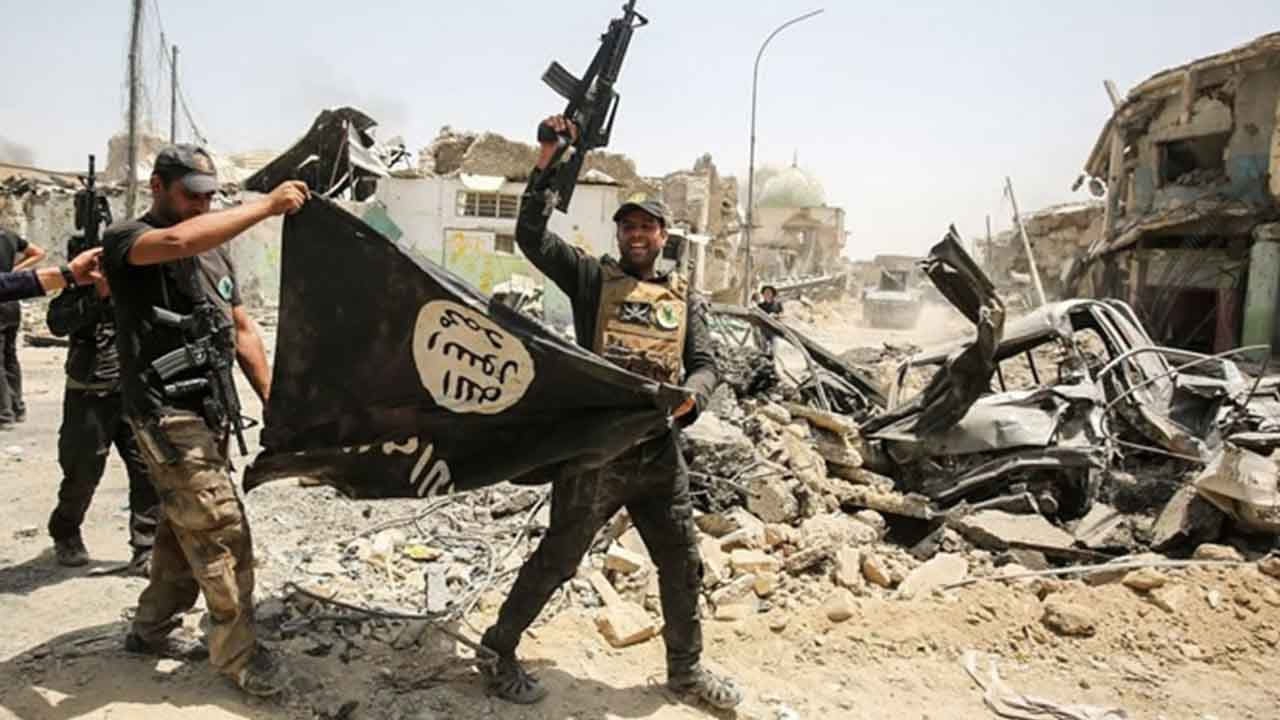
ISIL, the most notorious and bloodiest terrorist group in the post-Osama bin Laden era, reportedly confirmed the death of its leader Abu Bakr al-Baghdadi on Tuesday, just a day after its fighters were driven out from the northern Iraqi city of Mosul by Iraqi government forces.
Baghdadi is believed to have been killed in late May during a Russian airstrike near Raqqa, the de facto capital of ISIL in Syria, while the defeat in Mosul marked the loss of the group's other capital and last stronghold in Iraq.
Will ISIL survive this double blow?
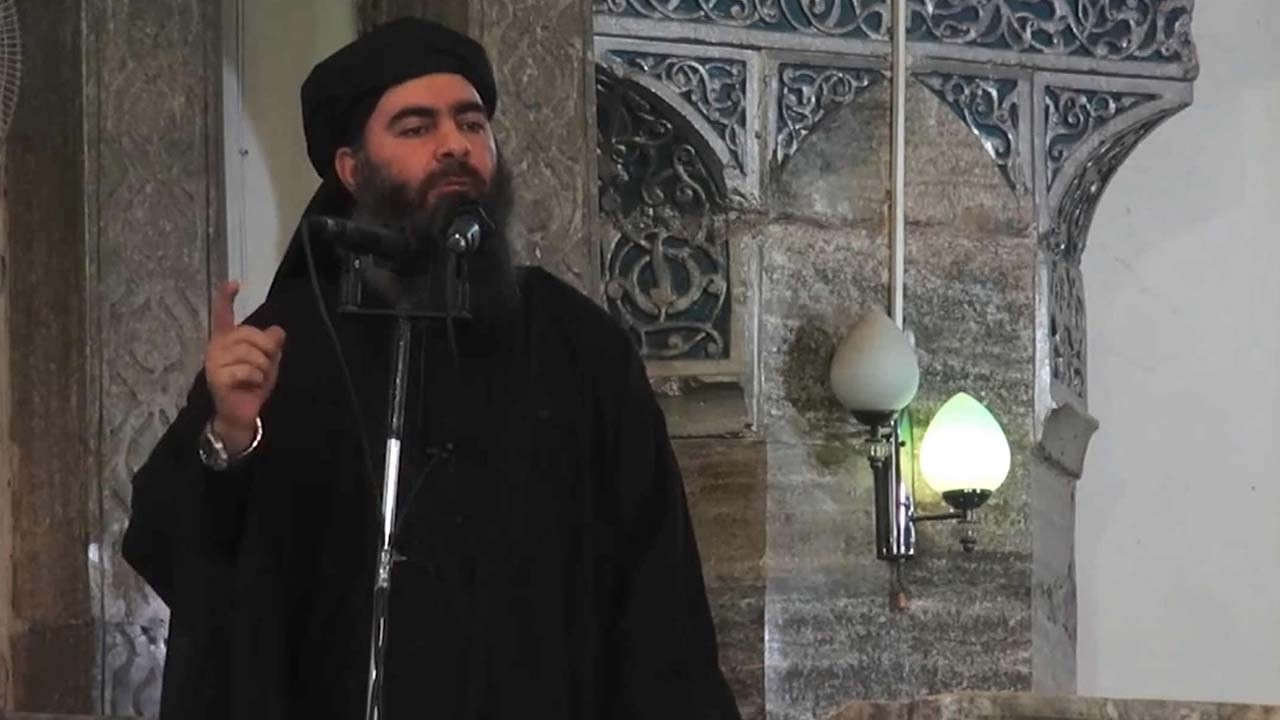
Most wanted man on the earth
With Mosul retaken by Iraqi forces and Raqqa under siege by US-backed coalition forces and Russian planes, the "caliphate" is quickly losing its once vast territories. Will it fall apart after the death of its self-claimed "caliph"?
Abu Bakr al-Baghdadi, which is a nom de guerre, was born Ibrahim Awwad Ibrahim Ali al-Badri al Samarrai in Samarra, north of Baghdad, in 1971. He grew up in a religious family and studied Islamic Theology in Baghdad.
Reports suggest he was a cleric in a mosque in the Iraqi capital around the time of the US-led invasion to topple Saddam Hussein in 2003.
It is unclear whether he was radicalized during Saddam's rule or during the four years when he was detained by US forces at Camp Bucca in southern Iraq, along with many Al Qaeda commanders.
After being released by the Americans who considered him a civilian, Baghdadi emerged as the leader of Al Qaeda in Iraq, one of the groups that later became Islamic State of Iraq and the Levant (ISIL) in 2010.
He did not swear allegiance to Al Qaeda leader Zawahiri, who had urged ISIL to focus on Iraq and leave Syria to Al Nusra.
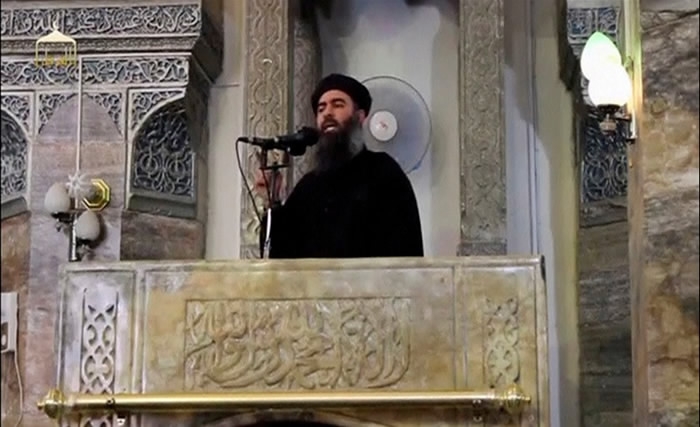
Abu Bakr al-Baghdadi making his first public appearance at a mosque in Mosul, according to a video recording posted on the Internet on July 5, 2014. /Reuters Photo
Abu Bakr al-Baghdadi making his first public appearance at a mosque in Mosul, according to a video recording posted on the Internet on July 5, 2014. /Reuters Photo
ISIL gained global prominence in early 2014 when it drove Iraqi government forces out of key cities in its Western Iraq offensive, followed by its capture of Mosul.
In June 2014, Baghdadi proclaimed the creation of an ISIL "caliphate" and began referring to the group as Islamic State or IS.
As ISIL jihadists took large swathes of territories in Syria and Iraq and launched terrorist attacks around the world, Baghdadi became one of the most wanted men on the earth.
The US, which officially designated Baghdadi as a "terrorist" in October 2011, offered a 25-million-US dollar reward for information leading to his capture.
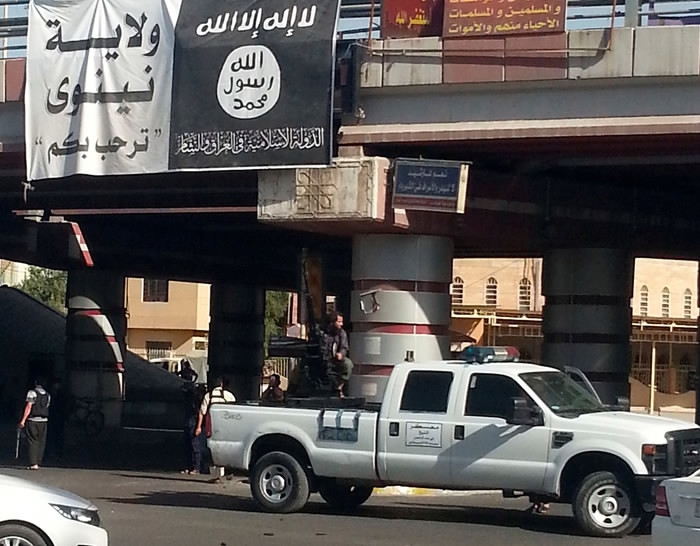
An ISIL fighter manning an anti-aircraft gun mounted on the rear of a pickup truck in Mosul, Iraq, July 16, 2014. /VCG Photo
An ISIL fighter manning an anti-aircraft gun mounted on the rear of a pickup truck in Mosul, Iraq, July 16, 2014. /VCG Photo
'Caliphate' doomed, but…
Since reports of Baghdadi's death came out last month, global media have been analyzing its potential impact. While many opinion pieces agreed it would be a massive blow to ISIL, they did not believe the world would be a remarkably safer place with the "caliph" gone.
The death of Baghdadi "would be a massive blow" to ISIL "both symbolically and strategically," Kim Sengupta stressed in an article in the Independent on June 16.
"With or without Mr. Baghdadi, the Islamic State in its current form is doomed," Ali H. Soufan wrote in The New York Times on June 20. "Bin Laden's ideology, however, is destined to survive well into the future."
According to Soufan's predications, ISIL and Al Qaeda, which disagree with each other on some ideological and strategic issues, could reconcile after Baghdadi's death.
Thousands of ISIL fighters "will not melt away" even if the jihadist group is shattered, he indicated. "Instead, like generations of jihadists before them, they will seek alternative outlets for violence."
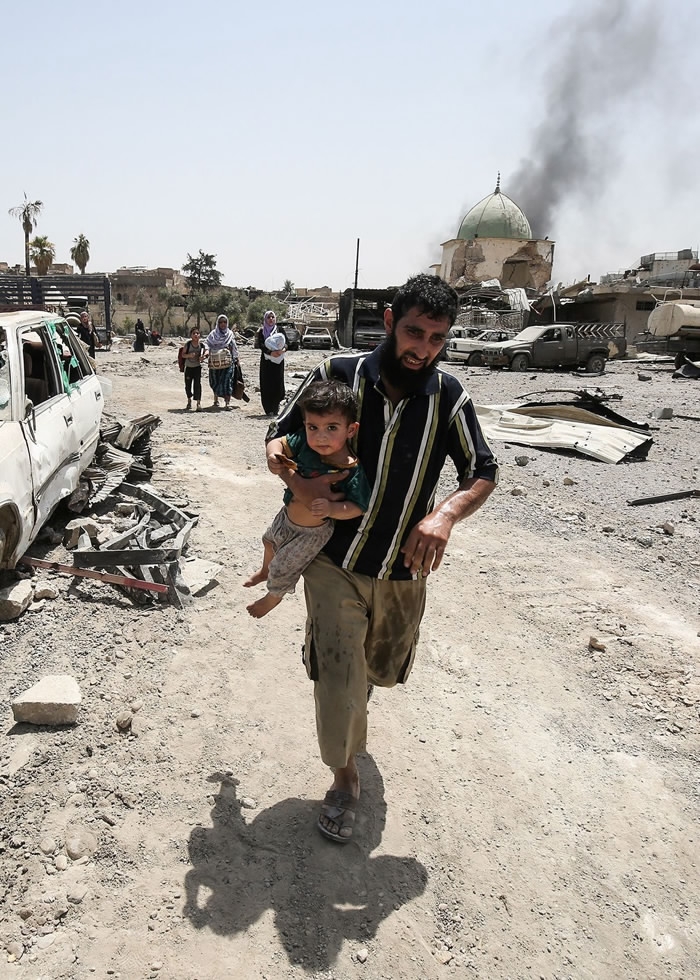
A man carries a child while fleeing from the Old City of Mosul on July 2, 2017, as Iraqi government forces continue their offensive to retake the city from ISIL fighters. /VCG Photo
A man carries a child while fleeing from the Old City of Mosul on July 2, 2017, as Iraqi government forces continue their offensive to retake the city from ISIL fighters. /VCG Photo
Similarly, Sami Moubayed wrote in an Asia Times article on July 4 that if Baghdadi is dead, "another will emerge" unless the ideology of ISIL is eradicated, citing the continued existence of Al Qaeda and terrorist attacks after the death of its leaders Abdullah Azzam and Bin Laden.
Anyone can "repeat the same trick" that Baghdadi proclaimed himself as "caliph" of the Muslim world, Moubayed said.
To be sure, the death of a major terrorist figure is good news for the world, but it is still too early to celebrate the end of an era marked by deadly terrorism.
Related stories:

SITEMAP
Copyright © 2018 CGTN. Beijing ICP prepared NO.16065310-3
Copyright © 2018 CGTN. Beijing ICP prepared NO.16065310-3